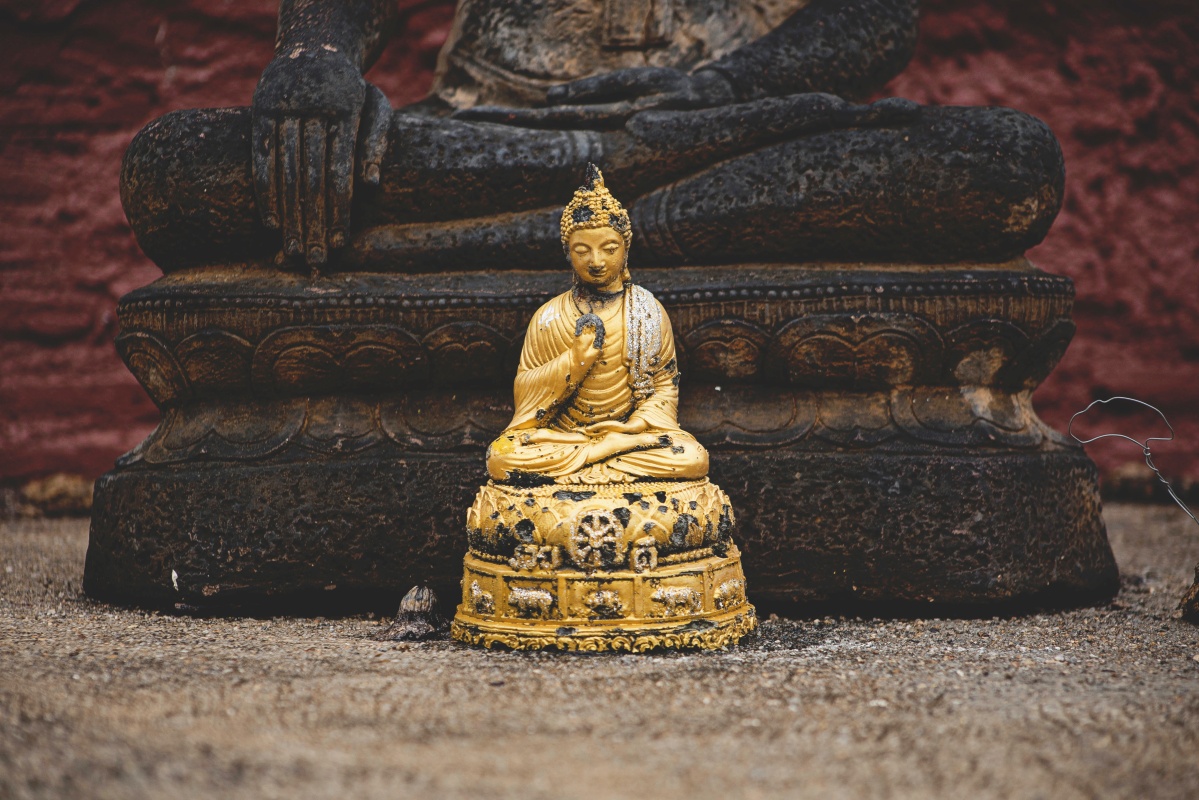
“Meditation…we see what comes up, acknowledge that with kindness, and let go.”
Pema Chodron, American Buddhist Nun

“Meditation…we see what comes up, acknowledge that with kindness, and let go.”
Pema Chodron, American Buddhist Nun

Chodron’s third kind of harmful laziness is the “Couldn’t Care Less” form. This is a harder, tougher version of “Loss of Heart.” For in this type of apathy, we are hardened and angry at the world. We are “aggressive and defiant.” If someone tries to cheer us up, we lash out at them. We use “laziness as a way of getting revenge.” But really, we hurt ourselves the most.
Until we decide to investigate and objectively look at our intentions, we will continue this destructive pattern. We will continue to have our “problems”: health, relationships and career.
It’s simple, but not necessarily easy. Sometimes, we don’t want to “get real.” We are comfortable in our habitual patterns of laziness. But the benefits of doing the work will greatly outweigh any temporary comfort.

Yesterday’s post was a review of Pema Chodron’s take on laziness (part one) from her book The Places That Scare You. Chodron asserts that there are three “debilitating habitual patterns” that we often partake in.
The second type she identifies is “loss of heart.” One symptom of this form is when we tell ourselves something like, “I’m the worst. There’s no hope for me. I’ll never get it right.” (Chodron, 90).
When we become lazy with loss of heart, we avoid interacting with the world. We retreat and we watch lots of TV (or surf the net). We eat, drink, smoke and watch the screen mindlessly. We have forgotten how to help ourselves.
The remedy for Lazy Type 2 is the same for Lazy Type 1. Get curious. Ask the right questions (hint: one wrong question would be, “why me?”). Notice that you don’t have to subscribe to negative thought or belief patterns. You can choose differently.
We often condone our behavior. We say we are “happy” and deserve to relax. But in reality, we are “haunted by self-doubt and feelings of inadequacy.”
Why concern ourselves with these notions of laziness? As Marcus Aurelius (Roman Emperor, 161 – 180 AD) reminds us in The Meditations, our lives are short. There is no time to waste.

An oft-overlooked enemy of our confidence and strength is laziness. Pema Chodron identifies three different types of laziness. Today, I will address the first: Comfort Orientation. People (we) “tend to avoid inconvenience.”
Chodron accurately describes our tendency to want to be comfortable immediately in her book The Places That Scare You. At the first sign of cold, we seek heat. When it gets warm, we seek the cool. We will drive rather than walk a block in the rain.
This habit leads us to be aggressive. We get outraged at inconvenience. As soon as we lose internet connection, we feel personally attacked! Acting this way, developing the habit of seeking comfort in an urgent manner, also robs us of full appreciation through our senses: sights, sounds, and smells (Chodron, p. 90).
True joy eludes us when we are perpetually being at the mercy of constant comfort. When we act this way, the locus of control is outside of us.
How then, do we rectify this? Get curious! Ask yourself, “Why am I suffering? Why does nothing lighten up? Why do my dissatisfaction and boredom get stronger year by year?” (Chodron, 91).
Stories might arise. And we might realize that we do not have to believe these stories anymore. Do not resist laziness. (What we resist only grows stronger). Instead, be curious.

“Don’t expect applause.”
– Pema Chodron
I was waiting for my car to be repaired at Discount Tire. Waiting at the counter, sitting on a tall stool, was a girl of about six. She was coloring in her coloring book. Her little brother started to walk up towards her. He must have been four or five. Anticipating his height, she pushed the stool next to her closer to the counter and he was able to climb onto it. She resumed coloring. He didn’t say thank you and she didn’t anticipate it.
“Don’t expect applause” means don’t await thanks for what you do. And do not do kind acts in hopes of having people like you. Be kind for integrity’s sake.

by Sam Ferrara
“Always meditate on whatever provokes resentment.”
– Pema Chodron
I stepped up my workout yesterday and this morning (in pain) I asked, why did I do that to myself? The answer: I want to be strong and flexible and … I want to look good in my swimsuit. 😉 Completing an “easy” workout would not have the same effect. Sure, I’d burn a few calories, but without the extra burn and stress on my muscles, I would see little benefit.
It’s this way with our mental muscles, too. Pema Chodron, a world reknown Buddhist nun and author of several books, (including The Places That Scare You), informs readers that it takes effort to experience peace and happiness. One must be attentive and aware of one’s thoughts. “Our training encourages us to open the bags and look closely at what we are carrying…much of it isn’t needed anymore.”
We’re so used to blaming others for our emotions. The first step to everlasting happiness is to take responsibility for our own thoughts and actions. Self-deception is a workable habit of the mind, we only need to decide to change and do the “heavy” lifting.